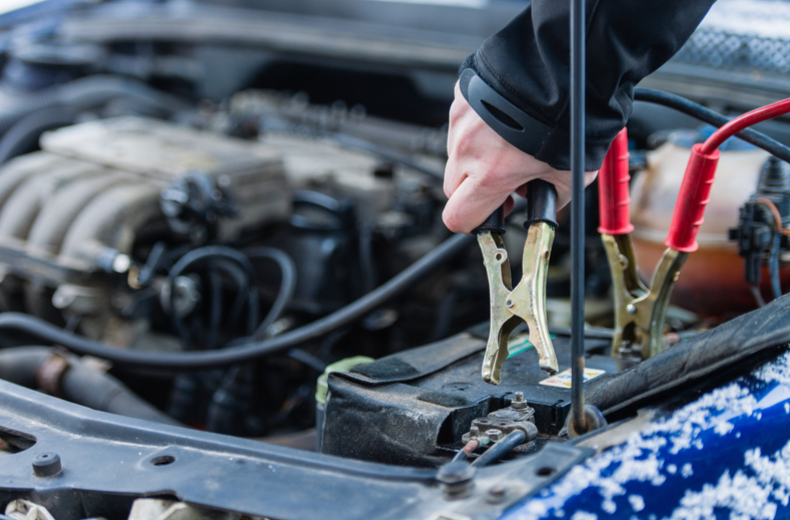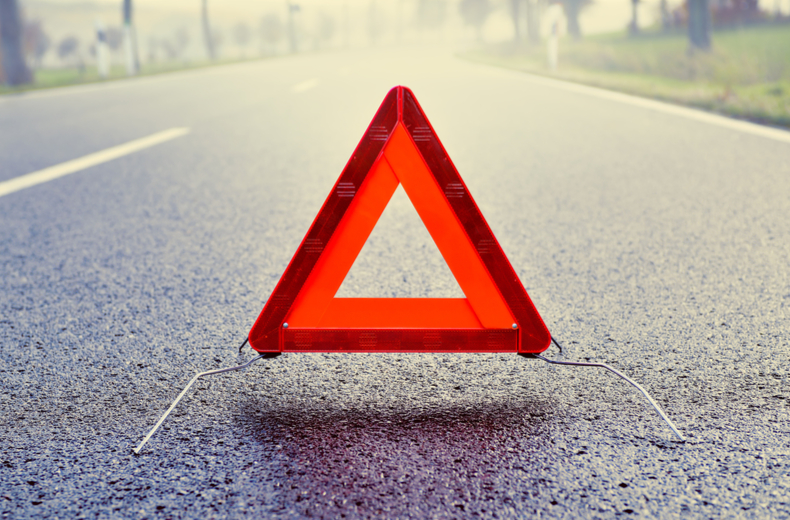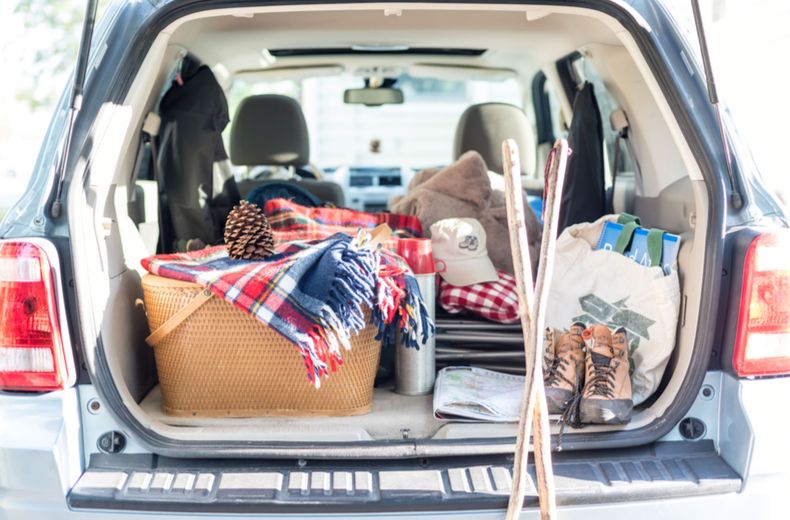Perhaps you have a new driver in the family or you’re looking to buy a gift for that special driver in your life?
Here's our list of all the vital driving tools, accessories and essentials for any everyday driving eventuality:
- Maintenance and repair
- Safety
- Comfort and convenience
- Insurance and legal documents
This list isn’t exhaustive, depending on your individual situation you may need more or less - so be prepared.
- Worried about travelling abroad? The RAC offer Breakdown Cover for most countries in Europe such as France, Spain, Germany, Italy and Ireland.
- Driving in Europe checklist
- The ultimate guide to the Channel Tunnel
Maintenance and repair
1. Empty fuel can
If you run out of fuel on the road, you can walk or get a lift to the nearest petrol station with your empty can to fill up.
2. Spare tyre
Some cars are now sold without a spare wheel and finding out you don’t have one when you most need it can be quite a shock. Make sure you’re carrying a spare tyre in good condition and that you know how to change it.
3. Tyre jack
Without a tyre jack, a spare tyre is pretty useless, so keep one on hand just in case you need to change a tyre.

4. Jump leads and a portable battery pack
Avoid getting stranded with a flat battery by carrying jump leads, then you can get a jump start from another motorist. Better yet, grab a portable battery pack and you won't need to rely on another vehicle to get you up and running again. To learn how to jump start your car, check out our video guide.
5. User manual
Pop your user manual in the glovebox and you’ll have all the information about your car to hand whenever you need it. Yes, it's usually an incredibly dense read, and you can usually find everything you need to know online, but to protect against patchy mobile network signal or misinformation on the web, it's always worth keeping your manual in the dash.
6. Tyre pressure gauge
Poorly maintained tyres can be a hazard on the road, have your own gauge on hand just in case you ever need to check your tyre pressure. It's a good idea to make it part of your pre-MOT ritual.

Complete peace of mind for less
• Cheaper than AA Price Guarantee^
• We get to most breakdowns in 60 mins or less
• Our patrols fix 4/5 breakdowns on the spot

7. Toolkit
Keep a basic toolkit in your boot just in case you find yourself needing a hammer, screwdriver or a pair of pliers. Your less able relatives will thank you for carrying one when you go to visit them and you can prove your handiness!
8. Duct tape
Duct tape can cover over a multitude of sins, so whether you’ve got a smashed window, a broken door handle, or a boot that won’t stay closed, duct tape can give you a temporary fix until you reach a mechanic.
Just be aware that driving a vehicle that's held together by a precarious arrangement of tape is not only dangerous, but potentially affects your insurance. Always check with your provider for advice and never drive a vehicle if you think it may be unsafe.
If you need assistance you can call the RAC on 0330 159 1111 whether you are a member or not. You can also get immediate cover, which might work out cheaper if you are not a member.
9. WD-40
Whether you want to clean shaving foam off your car, prevent your fuel flap from sticking or stop your door from squeaking, WD-40 can help.
Safety

10. Jacket
If you breakdown in adverse weather, you’ll need to stay warm if you have to walk to get help or stay with your vehicle and wait for recovery. A nice thick jacket is essential, but other items like hats and jumpers can also be lifesavers. Make sure you have all the breakdown accessories available.
11. Boots
You might need to trek through harsh terrain, deep snow drifts or even push your vehicle to safety, so making sure your shoes have grip, especially in wintery conditions, is important.
12. Drinking water
A sealed bottle of water will stop you becoming dehydrated and could also come in handy if you need to top up the water in your car’s radiator.
13. Non-perishable snacks
Energy or cereal bars are great to keep in your glove compartment just in case you need to keep your energy levels up.
14. Hi-vis vest
A high-visibility vest is critical to ensure that you’re seen by other motorists and could even help save your life if you need to walk along dark roads, particularly in rural areas.
It's also one of the items required by law if you're planning to drive in many European countries. Check out which items are illegal to travel without on the European Driving Kit page of the RAC Shop.
- Driving in Europe checklist
- Regular car checks to help prevent a breakdown and keep you safe
- How to pack for a road trip
15. Warning triangle
A reflective warning triangle will warn approaching cars you’ve stopped. Carry 2 so that you can place them at the front and rear of your car, they'll ensure that other road users are aware of your location which should make a breakdown situation safer for everyone.
16. First aid kit
Most car accessory stores and some supermarkets stock simple first aid kits that will include all the essentials.
17. Sunglasses
These aren't just for making sure you look cool behind the wheel - when the sun is low in the sky, particularly around spring and autumn, the glare can be blinding so keep some sunglasses to hand.

18. Map
Yes, an old-fashioned paper road atlas can help you out of a pinch just in case your phone is out of battery/data/signal or there aren't any locals around to ask.
19. Swiss Army knife
The shorthand for versatility - a Swiss Army Knife or multi tool will be your saviour in a range of situations. You could be tightening a vital screw or you could be opening up a can of beans at the campsite, either way, you don't want to be without one of these.
20. De-icer/ice scraper
Don’t drive blind in icy conditions and use de-icer or an ice-scraper to clear the windscreen. Your bank cards will thank you for this one.
Grabbing an ice scraper will ensure you don't accidentally break the law when driving in wintery weather either.
21. Torch (wind-up)
If you have to check under the bonnet in the dark, you’ll need a torch and if you don’t want to worry about flat batteries why not invest in a wind-up one?

SALE - European Breakdown Cover
*Max 40% applies to new Annual Comprehensive Plus policies. Ends 02/01/25, 9am..

Comfort and convenience
22. Travel games
If you travel with kids, you’ll know that keeping some travel games on hand could help save you from hours of whining from the backseat. Just be aware of the increased nausea risk.
23. Gloves
If you feel the cold, keep some gloves in their rightful home (the glove compartment) and avoid any freezing fingers on the steering wheel.
24. Aux cable
Connect your phone to your car speaker before you set off and listen to the songs you want whenever you want. Just don't touch your device once you've departed!
25. Change
Don’t get caught out with unforeseen tolls or parking fees by keeping some change in the car.
26. Blanket
A blanket could keep you warm in a wintery breakdown or double as a picnic blanket in the summer, so it’s a definite car boot must-have.
27. USB charger
Never let your phone battery die again with a USB charger that plugs into your cigarette lighter. Again, plug it in before you set off.
28. Umbrella
You can never trust the British weather, so keep an umbrella on hand just in case.
29. Tissues
For when you spend so long in traffic you break down in tears – or more likely for when you need to blow your nose.
30. Mints
Arrive fresh and ready for anything.
Insurance and legal documents
31. Photocopies of your documents: While there’s no legal requirement to carry any documents in your car, it could save you a lot of hassle if you’re stopped by police or need to contact your insurance company — just make sure you carry photocopies and not the original documents! Store photocopies of your Certificate of Insurance and your vehicle’s V5C registration document and information on how to contact your insurance company.
32. Pen and Paper
Even in the digital age, pen and paper can still be useful, especially as they don’t need to be charged.
33. RAC membership details
Always keep a copy of your RAC membership details with you just in case you break down and need recovery.
And remember…
If you’re traveling abroad, you need to check if there are any local requirements for you to keep certain items in the car.
For example, motorists in France are legally required to carry hi-vis vests and spare bulbs, among other things. So before your next drive abroad do your research first.
Did you know, you can get fined for moving out of the way of an ambulance?
Want more useful content like this sent straight to your inbox?










